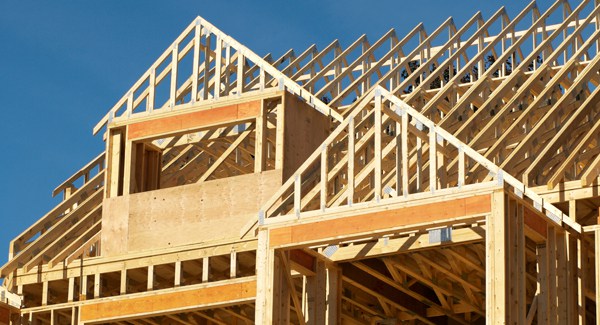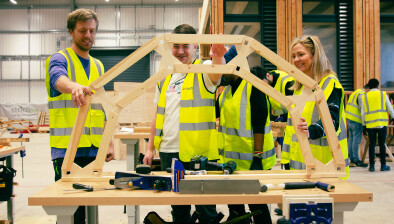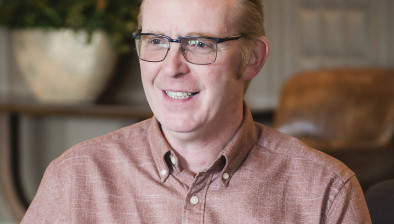Timber homes can help tackle climate emergency, Westminster inquiry told
Scotland’s timber industry can help tackle the UK’s housing crisis and the global climate emergency, a Westminster inquiry has heard.

An evidence session has been told that conventional housebuilding materials are not adequate to reach the net-zero emission targets set by both the UK and the Scottish governments.
Timber is the only material which can lead to a construction project having a negative carbon footprint. If timber frame constructions are used to build 200,000 houses in the UK every year, homes would be built up to 30% faster and it would reduce and store four million tonnes of carbon dioxide.
According to the Structural Timber Association, 83% of new housing starts in Scotland are made by timber frame, compared to 30.7% in Wales, 22.8% in England and 17.4% in Northern Ireland.
One tonne of CO2 is emitted into the atmosphere for every cubic metre of concrete created, whereas with timber one tonne of CO2 is ‘sequestered’ for every cubic metre created, even when accounting for manufacturing and transport. Carbon sequestration is the long-term storage of carbon dioxide or other forms of carbon to either mitigate or defer global warming.
The Confederation of Timber Industries is committed to sourcing timber from sustainably managed forests, where more trees are planted to replace those harvested. Wood can be pre-engineered off site and delivered ready to erect into a form or structure, reducing the amount of deliveries and the build times.
Building with wood is energy efficient, with insulating properties that can lead to a 90% reduction in heating bills. It is ten times more insulating than concrete, 400 times more than steel and 1,700 times more than aluminium.
The findings were announced at an evidence session with local businesses at Queen Margaret University in East Lothian as part of a wider Westminster inquiry that will hear from business leaders from within the timber and forestry sectors, as well as architects and academics working within construction. It will focus on how the industry can provide skilled employment, deliver sustainable housing and address the climate emergency.
Martin Whitfield, Labour MP for East Lothian and chair of the Westminster All-Party Parliamentary Group (APPG) for the timber industries, said: “Timber is a product which can help provide affordable homes, increase employment opportunities, and crucially help the UK reach net-zero emissions.
“The UK must drastically re-think our entire built infrastructure moving forwards if we are going to tackle the climate emergency head on. Without wholesale changes to the way we construct our homes and the wider built environment, we will fail to meet our net-zero emission targets by 2050.
“When sourced sustainably, and at every stage of the building process, timber is proven to be more environmentally friendly than any other core building material. It is key to ensuring all new-build homes across the UK are carbon neutral.”
Roy Wakeman OBE, chairman of the Confederation of Timber Industries (CTI), said: “The timber industry has the technology and knowledge to build high quality, low carbon and resilient homes, quickly.
“Sustainable, versatile and energy efficient, timber is the only material which can lead to a construction project having a negative carbon footprint. If we were to use timber frame construction to build 200,000 houses every year, not only could we build homes up to 30% faster, we would be able to reduce and store four million tonnes of CO2.
“This inquiry, supported by the CTI secretariat, is challenging political thinking and coming up with recommendations, which, if implemented by Government, will help to get the UK building.
“Our latest evidence session in East Lothian gave the APPG the chance to hear from local timber businesses about the work they are doing to support housebuilding locally and across Scotland.”
Witnesses at the evidence session yesterday included Alex Goodfellow, managing director Stewart Milne, Hamish MacLeod, director of public affairs BSW Timber, Robert Hairstans, professor at Edinburgh Napier University, and Peter Smith, Roderick James Architects.

















